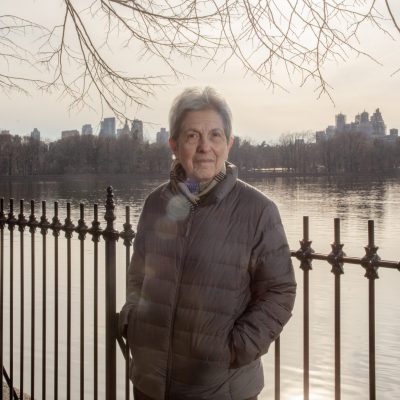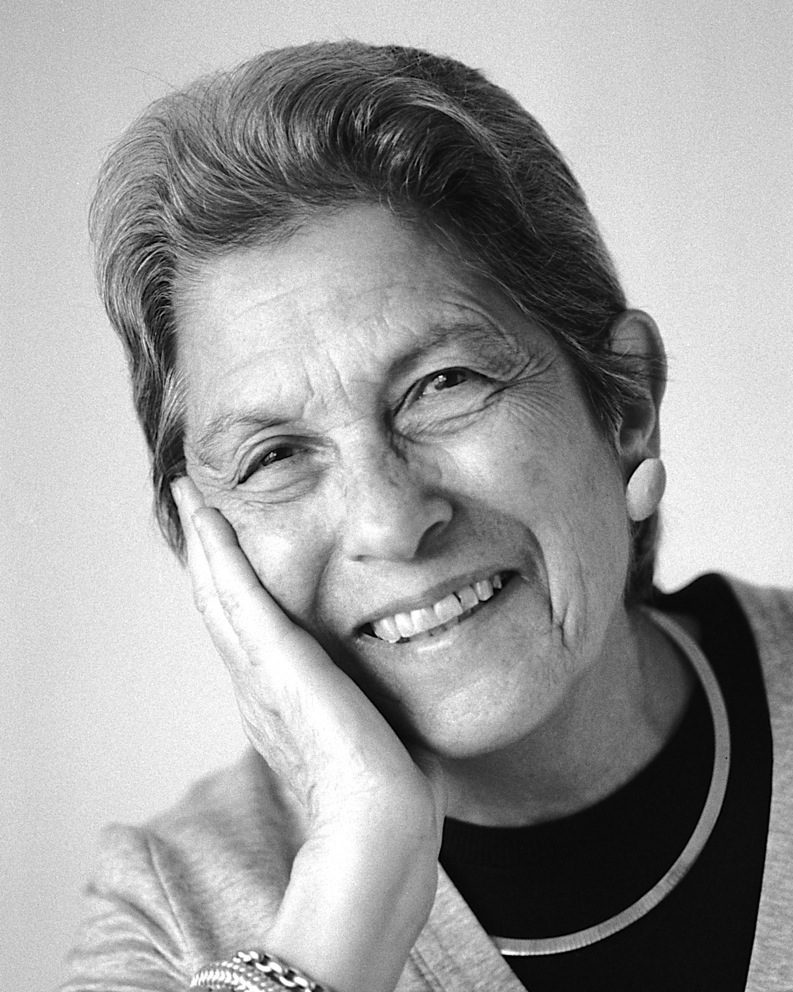Details
Article
On March 21, 2023, Humanity in Action Executive Director Judith Goldstein published a letter to the Humanity in Action network, discussing the ongoing struggle against rising Antisemitism, both in the US and across the world. Below is the letter, published in its entirety:
In reflecting on the past 26 years, I have found myself returning to the core and sustaining ideas upon which Humanity in Action was founded in 1997. In that spirit, I would like to share thoughts on Antisemitism and the role we all must play in fighting against it, and other forces by which minorities are made vulnerable and imperiled.
On Antisemitism
On January 26, 2023 the European Parliament held a commemorative service to observe International Holocaust Remembrance Day. Before introducing President of Israel Issac Herzog, President Roberta Metsola spoke on behalf of the European countries in the Parliament. “Every year around the 27th of January,” she said, “the world remembers the millions of innocent men, women and children who were murdered in history’s greatest crime. A crime intended to wipe off a people from the earth. A crime designed to inflict horror on generations. A crime that has shaped our modern European project, into an embodiment of the timeless promise: Never again.”
She continued: “It was a crime that saw 6 million Jewish people murdered – for being Jewish. That saw Roma and Sinti people targeted. That saw LGBTI communities eradicated and so many others humiliated and killed, because of their ethnicity, disability, identity, race or beliefs. It is difficult to imagine the horrors of the Holocaust and the actions that led up to it.” Metsola also expressed concern about growing Antisemitism and called for unity with Ukraine in its fight against Russia.
On behalf of the European Parliament, President Metsola assumed responsibility for recognizing the destruction of Jewish life during the 1930s and 1940s: the suffering, the losses, the horrors of the intended extermination of a people that thought it belonged in Europe and to Europe. A people that continues to live in Europe, in vastly diminished numbers than before the War, despite the prevalence of Antisemitism. Her approach assumes that the genocidal tragedy of Antisemitism has settled into the past although forms of Antisemitism-lite—beliefs and actions—continue to percolate into the present.
Annual rituals of observance attempt to connect past and present Antisemitism, often couched in “never again.” But the efforts linking past and present unfortunately may be fated to fail, especially as the generation of Holocaust survivors ceases to exist. Intimations of the disconnect may be found in Nora Horn’s provocative book People Love Dead Jews and David Baddiel’s book Jews Don’t Count. In one of many themes Horn assumes that for the world at large, dead Jews are easier to accept and even deify, as Christians have done with Christ, than living Jewish populations. A slightly more complicated, nuanced approach is found in Baddiel’s approach. The Holocaust notwithstanding, he writes, living Jews on both sides of the Atlantic do not qualify for protection in the newest culture wars as societies seek to redress centuries of discrimination and oppression of racial and other identity groups.
These complexities are particularly challenging for Humanity in Action which came into existence to probe three principal challenges: how can democracies resist autocratic powers that often turn society against a minority; how do societies succumb to Antisemitism and racism; how does the past inform the present; The historic example was Denmark in the early 1940s; the minority was its Jewish population. The answer is still subject to scrutiny yet we understand some important aspects of what made Denmark unique among Western and Eastern European countries. Subject to German power, the Danish Christian population included Jews as part of the Danish nation—a minority that needed protection against a common enemy. In almost every other western and eastern European country under German or fascist rule (with the exception of Bulgaria and Albania), traditional Jewish vulnerability intensified in deadly ways. German fascism built upon conspiratorial hallucinations embedded in Christian theology. Over centuries of Christian expansion and European nation building, Jews were viewed as religiously suspect, a potential enemy or subversive element within Catholic and Protestant church-dominated countries: targets of blood libels; identified with diseases from the Black death to COVID; forced to flee from one country to another; confined to ghettos; excluded from economic, educational and governmental opportunities or when when granted admission as usurpers of wealth and cultures; subject to violent outbursts.

In the 19th and 20th centuries, religious differences between Christians and Jews were recast into racial-nationalistic doctrines that separated Jews as an inferior and infectious race apart from and dangerous to predominantly Christian populations. Jews were viewed both as subversive capitalists and communists. In the march to modernization Jews were feared as insidious forces that poisoned the fabric of national cohesion and historical narratives. Today, the latest conspiracies—QAnon and the Great Replacement theory—build upon irrational fears and recourse to violence to eviscerate civil order.
Despite the rituals and rites of Holocaust remembrance and the salience of human rights doctrines, Antisemitic tensions are rising in Europe and the US. Nothing new, writes Noam Schimmel, an historian and Senior Fellow. Antisemitism is “simply a pernicious form of hatred, discrimination, and persecution that has led to exclusion and mass murder for several thousand years and is returning in prevalence and intensity, found across the political spectrum, but with particular violent immediacy amongst white supremacists and with conspiratorial tendencies across the social and political spectrum.” David Rich, in his newly published Everyday Hate, cites polls in Great Britain that reveal Antisemitic views are more prevalent and growing among young people in contrast to older populations. “Jewish people,” he writes, “are, numerically speaking, an insignificant dot in the global population. And yet, 23 per cent of all religious hate crimes in England and Wales last year targeted Jews. Thirty-four percent of 18–24-year-olds believe that ‘Jewish people have an unhealthy control over the world’s banking system.” The statistics–tracking violent acts compared to actual minority representation—are skewered or imbalanced in the US as in the UK.
Suspicious attitudes and hostile actions often still continue to separate Jews from belonging securely to national communities. As they seek to call a nation their home, they remain, all too often, caught between belonging and rejection; between negotiating their distinctive past and present apart from a national narrative; between questioning among themselves and others about their relationship to Israel. For Jews and other minorities, the invaluable concept of “home” is all too often illusive and problematic and cast in ambivalent or exclusionary ways.
Lewis Hyde, an American essayist, explores the importance of “home” in A Primer for Forgetting: Getting Past the Past. The book is a study of reconciling “home” with past injustices on the part of individuals, communities and nations. How, he asks, should individuals and societies remember oppressive histories and how should they forget so as not to be consumed by hatred and revenge for past injustices? Hyde pays particular attention to atrocities against Native Americans and Blacks in the US, civil wars in Spain and South Africa among many other countries. “What is home?” he asks as he describes the trial and conviction of a Ku Klux Klan member 42 years after he killed two Black men. “In this case,” Hyde writes, home is a community of shared values. It “is a place that has at least three elements: truth, justice, and-most important—shared understanding….The overcoming of difference is a collective art, and ‘home’ in this case is where your sense of truth and justice is held in mind by the surrounding community.”
Differences can lead to violence just as easily as they can lead to the passivity of bystanders and the retreat into silence and disengagement that separates people. The silence of 42 years between a Mississippi killing and the conviction of a murderer. Or the silence of neighbors watching the deportation of Jews from a city or a village during the Holocaust. The Israeli writer Aharon Appelfeld described the pernicious powers of difference which led to silence—a silence that separated Christians and Jews in his native Ukraine before and during the Holocaust. He recalled that differences and suspicions first seeped into his psyche and that of his family. And then there was silence as the madness of war enveloped his family and their neighbors:
“From my earliest youth I was drawn to non-Jews. They fascinated me with their strangeness, their height, their aloofness. Yet the Jews seemed strange to me too. It took years to understand how much my parents had internalized all the evil they attributed to the Jew, and, through them I did also….The change took place in me when we were uprooted from our house and driven into the ghettos. Then I noticed that all the doors and windows of our non-Jewish neighbors were suddenly shut, and we walked alone in the empty streets. None of our many neighbors, with whom we had connections, was at the window when we dragged along our suitcases.” (Philip Roth, Why Write: Collected NonFiction 1960-2013. P 214)
None were at the windows in the village. None protected the Jews about to be deported. Ukraine was not unique. It was no different in The Netherlands during the roundups—with one exception. All too frequently Dutch neighbors stood at their windows watching the Jews as they walked through the streets on their way to the Westerbork transit camp—the last stop before the trip to Poland.
“We must speak because despite decades of effort, anti–Semitism still exists,” President Metsola told the European Parliament. “Hate still finds too many voices excusing it. Too many families in Europe and around the world live with packed suitcases by their door. We cannot allow anyone to find comfort in ignorance….Let me repeat what I said in the Knesset: to be anti–Semitic is to be anti-European…. We have not been silent when it comes to standing up for our values. Nor when it comes to Russia’s aggression in Ukraine and the rhetoric used to try to justify it. Neither have we been silent when it comes to the regime in Iran who execute young people standing up for women, life and liberty.”
These intentions should carry deep meaning for the countries joined in the Parliament and for Humanity in Action. The organization is committed to resisting those who subject religious, racial, ethnic and gender minorities to exclusion, hatred and violence. As Hyde wrote, “the overcoming of difference is a collective art.” But it is not just an art. It is a collective moral and political obligation which democratic societies must struggle to achieve. Two decades into this work, Humanity in Action continues to focus on the vulnerability of American and European liberal democracies in their commitment to fight racism and Antisemitism. In the current campaign of hatred and white supremacy, Antisemitism is once again enveloped in racism. And once again, the defense of ethnic, racial and religious freedom, critical in Denmark in 1943, remains at the heart of our democracies and the viability of human rights.
Cordially,
Judy


